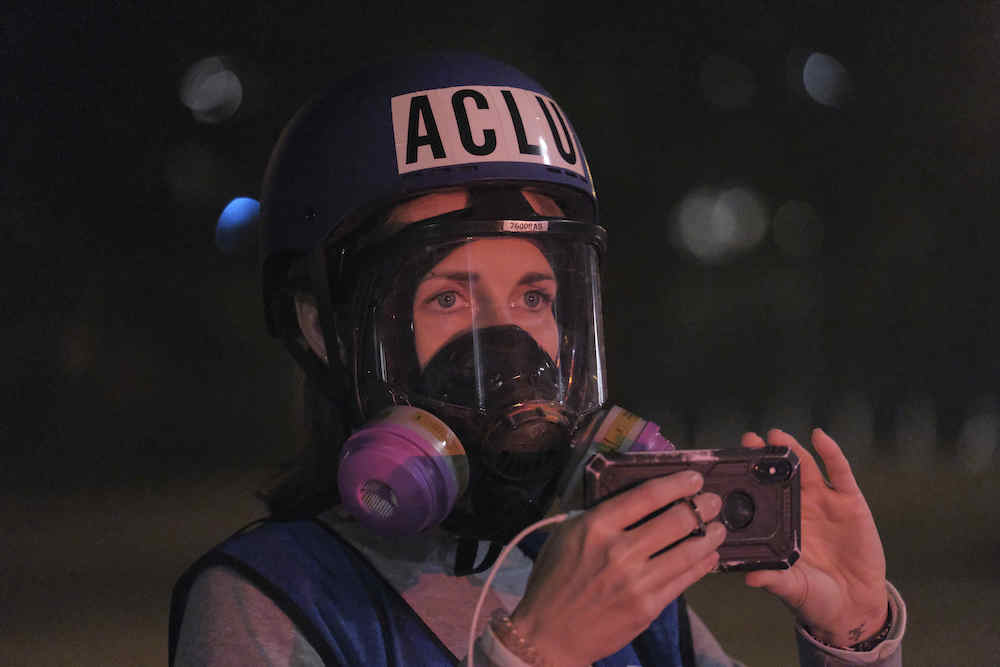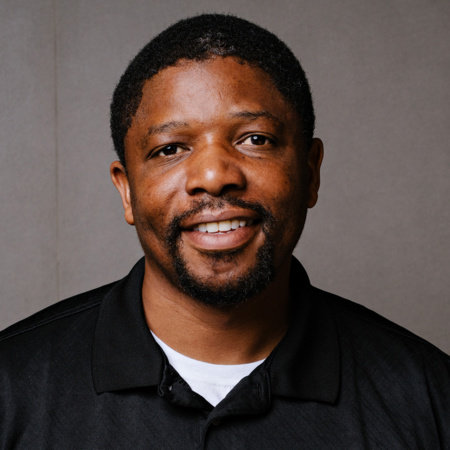تُرجم هذا المقال بالتعاون مع نيمان ريبورتس-جامعة هارفارد.
تعدّ تغطية صحيفة نيويورك تايمز للشقاق الداخلي في الاتحاد الأمريكي للحريات المدنية (ACLU) من الأمثلة الواضحة على عبثية التشبّث بمفهوم "الموضوعية"، ويمكن أن نناقش هذه القصّة بالتوازي مع الجدل الدائر حول التعديل الأول للدستور الأمريكي، والنضال المتواصل من أجل المساواة داخل غرف الأخبار في الولايات المتحدة.
تلك القصّة لم تكن موضوعية، بل تم تأطيرها وفق وجهة نظر تقليدية، ومع ذلك فليس ذلك انتقادًا لها.
شخصيًا لم أكتب أي شيء يمكن أن يوصف بأنه "موضوعي"، رغم أنني أمضيت مسيرتي المهنية وأنا أحاول الالتزام بالإنصاف والدقة بالقدر المتاح لي ذهنيًا على المستوى العملي.
وهذا تمامًا ما ينطبق عليك في أي شيء أقدمت على كتابته، باعتبار أنه بالضرورة قد رشح عبر ذهنك المتفرّد بانطباعاته وتحيزاته.
نحن نعترف بهذه الحقيقة عبر تخصيص قسم نطلق عليه "مقالات الرأي"، وهو ما لا يسري على القسم الذي تنشر فيه "الأخبار الصرفة"، رغم أن ما أكتبه بهذه المساحة يشبه ما فعلته حين كنت مراسلًا مختصًا بالشؤون العقارية ومحررًا لقسم الأعمال، وهو مشابه أيضًا لعملي في التحقيقات الصحفية، حين أجريت تحقيقًا استقصائيًا حول دائرة الخدمات الاجتماعية في ولاية كارولينا الجنوبية.
ففي كل هذه الظروف، تعيّن علي دومًا أن أتخذ قرارات بشأن ما يلزم إيلاؤه الأولوية في التفكير، وأي المصادر يجب السعي وراءها، وأيها يجدر بي تجاهلها. هل كان عليّ مثلًا أن أخبر القراء بأن زيادة بنسبة 10% في مبيعات المنازل سنويًا هو أمرٌ إيجابي أو ظاهرة يجدر القلق بشأنها؟ كان علي أن أحدد السياق الذي يضمن مساعدة القراء على استنباط معنى من تلك الأرقام، دون تجاهل أن صحفيًا آخر قد يتوصّل إلى نتيجة مختلفة تمامًا بالاستناد إلى البيانات نفسها.
العنصر الأساس والثابت في منهجي في تدريس الصحافة والعمل الاستقصائي والتحرير والكتابة، سواء مقالات الرأي أو الأخبار الصرفة، هو التفكير النقدي، والذي أعدّه الركن الركين في الممارسة الصحفية المحترمة. لذلك، فإن كل شيء كتبته على المستوى العملي، يندرج بشكل أو بآخر تحت تصنيف مقالات الرأي. فعلى الرغم من اعتمادي على الحقائق الموضوعية قدر ما وسعني ذلك، فإن الإطار الذي أوظّف فيه تلك الحقائق هو ما يشكّل المعنى والرسالة التي تؤديها.
لنعد إلى مقال نيويورك تايمز، يبدأ المقال بقصّة حول مأدبة غداء أقيمت احتفاءً بالمسيرة المهنية لمحامٍ مرموق في الاتحاد الأمريكي للحقوق المدنية، وهو ديفيد غولدبيرغر، إلا أن ذلك الاحتفال سرعان ما تحوّل إلى مناسبة للتظلّم، في نظر غولدبيرغر نفسه على الأقل. فهذا الرجل اليهودي الذي دافع عن حق التعبير للنازيين في السبعينات، أساءه موقف زملائه الذين رأوا من السائغ أن يمتنع محامو الاتحاد عن تبرير "خطاب الكراهية". وقال غولدبيرغر في مقابلة مع المراسل مايكل باول: "تولد لدي شعور بأن فريق الاتحاد كانوا أكثر حرصًا على الاصطفاف مع التقدميين، ولو على حساب المبادئ". وأضاف: "إن الليبراليين قد تركوا التعديل الأول وراء ظهورهم".
منحت نيويورك تايمز الصدارة لصوت غولدبيرغر، في مقال يلمّح عنوانه إلى أن الاتحاد يعيد النظر في موقفه إزاء التعديل الأول للدستور، جاء فيه: " بعد أن كان حصنًا منيعًا لحرية التعبير، الاتحاد يواجه أزمة هويّة". ومن المعلوم أنه يندر أن تجد عناوين تعبّر بدقة عن وجهة النظر التي يعرضها المقال، إلا أنها مع ذلك كانت كفيلة بالإيحاء بالموقف الذي يتخذه كاتبها. فعبارة "بعد أن كان حصنًا لحرية التعبير"، واضحة ولا تحتمل التأويل.
فهل يقصد الكاتب أن الاتحاد لم يعد حصنًا لحرية التعبير؟
من وجهة نظر تقليدية، الاتحاد ليس كذلك، أو لن يكون كذلك على المدى القريب. فالصورة التي تشكلت عن الاتحاد هو أنه يدافع عن الحق في التعبير للأفراد الذين يتبنون آراء منفرة للغاية، وهو الموقف الذي يمثله غولدبيرغر في المقال. وبالرغم من سلامة المقاربة، إلا أنها ليست الوحيدة الممكنة في صحتها.
لقد اشتملت القصّة على آراء تقع على طرفي نقيض، من بينها وجهة النظر التي مثلها دينيس باركر، والذي أشرف على برنامج الاتحاد للعدالة العرقية حتى غادره عام 2018. جادل باركر بأن الحماية التي يوفرها التعديل الأول "موزعة بشكل غير منصف بين الناس بحسب ما يتمتعون به من سلطة وامتيازات".
نحن نصف ذلك بالصحافة الجيدة، لأنها صحافة جيدة بالفعل، بما فيها من تمثيل لمختلف الآراء ونقل الحقائق بالقدر الأعلى من الدقة. ومع ذلك، فإن المقال في عرضه للآراء الأخرى، كان قد حدّد المعنى المقبول للالتزام بحرية التعبير من وجهة النظر التقليدية، والتي تشمل الدفاع حتى عن الآراء المنفرة الصادرة عن مجموعات الكراهية ولو تسبب بأذى للآخرين، لأن في ذلك حماية لحقوق الجميع بحسب وجهة النظر تلك.
وبعنوان كهذا، فإنه من السذاجة أن ننتظر من القارئ أن يمنح نفس القدر من الاعتبار لأي تعريف آخر سوى ما اختار الكاتب والمحرر تصدير المقال به، وذلك عبر قصّة توضّح المنطلق الذي يقوم عليه المقال بأكمله.
وأكرر القول هنا بأن ذلك ليس انتقاصًا من المقال، وإنما ملاحظة ترى أن "الموضوعية" في هذه الحالة، كما في جميع الحالات، ليست سوى سلسلة من الخيارات التي يتخذها أفراد غير منفصلين عن طبيعتهم البشرية التي تقتضي التأثر بالخلفية والتحيزات والتفضيلات في كل فعل وقول ووجهة نظر.
وحتى صياغة الأخبار الصرفة من صحفيين حرفيين أمر غير مستثنى من هذه الحقيقة.
فلننظر إلى هذه الفقرة: ما يزال الاتحاد الأمريكي للحريات المدنية يتحدى قوانين السريّة الحكومية والرقابة دفاعًا عن المبلّغين عن التجاوزات. فالاتحاد يخصص قدرًا كبيرًا من الموارد من أجل مراجعة القوانين المفروضة في عدد من الولايات، والتي وضعت من أجل حظر أو تقييد النقاشات المتعلقة بالنظرية العرقية النقدية، ومشروع 1619 الخاص بإرث العبودية، والإجراءات المناهضة للعنصرية. كيف يمكن أن يتسق هذا الكلام مع الادعاء القائل: "بعد أن كان الاتحاد حصنًا منيعًا لحرية التعبير"؟
وعلى افتراض أن الكاتب والمحرر قاما بما يلزم على مستوى البحث والمقابلات والتفكير النقدي أثناء إعداد تلك القصة الصحفية، فإن الخيارات التي أقدما عليها قد تكون هي التمثيل الأكثر دقّة لرأيهما عن القضية. فليس مستبعدًا أن يكونا قد انطلقا من وجهة نظر تقليدية حتى قبل اتخاذ قرار بالعمل على القصة وطرح الأسئلة المبدئية بشأنها.
كان بإمكان الكاتب ومحرره أن يبدآ مثلًا بقصة أخرى، كتلك الواردة في تغريدة أرسلها مكتب الاتحاد في أوهايو بعد قيام شرطي بإطلاق النار على فتاة تبلغ 16 عامًا، واتهمت شرطة المدينة بقتلها.
أو كان يمكن إدراج القصة إلى جانب قصّة غولدبيرغر، وترك التقدير للقارئ لتحديد أي القصتين تعبر عن موقف الاتحاد من حرية التعبير: دفاعه عن حق النازيين في التعبير عن الرأي، أو عن حق أحد فروع الاتحاد بالتعبير عن الأسى لمقتل فتاة سوداء في سياق نقاش وطني عام حول استهداف الشرطة للسود؟
حادثة إطلاق النار تلك، والتي جرى تسويغها بالنظر إلى أن الفتاة كادت تطعن فتاة أخرى خلال عراك بينهما، تسلط الضوء على ديناميكيات السلطة المجتمعية التي عادة ما تحدد من يحق له من الأمريكيين الاستفادة من أشكال الحماية بموجب التعديل الأول للدستور الأمريكي. فلو كان لدى الاتحاد التزام بالدفاع عن حقوق النازيين للتعبير عن آرائهم المقززة تجاه مجموعات مهمشة، فهل يكون لديه ذات الالتزام بالدفاع عن حقوق محاميه بنشر تغريدات جريئة حتى لو كانت تتعارض مع وجهة النظر السائدة لدى بعض محامي المؤسسة بخصوص تعريف حرية التعبير؟
كان بالإمكان نسج رابط بين القصتين للتعبير عن هذا التجاذب، بل والحديث ربما عن أنّه مقصود، نظرًا إلى أن النضال من أجل المساواة هو أحد أوجه الدفاع عن حرية التعبير. وكان يمكن للمقال في فقرة جوهرية منه أن يقول بوضوح إن الاتحاد مؤسسة ينتسب إليها ناشطون من مشارب مختلفة، وإنها ملتزمة بالتعددية كما هو جليّ في مقاربتها الواسعة للدفاع عن حرية التعبير. إلا أن هذه المقاربة كانت ستثير امتعاض التقليديين الذين يرون أن الأولوية لا بدّ أن تبقى محصورة في وجهة نظرهم، كما كانت دومًا على مدى وجود المؤسسة.
ولست أقترح هنا أن ذلك ما كان يجب على كاتب المقال القيام به، وإنما أقول إن المقال كان سيظل بنفس المستوى من "الموضوعية" في تلك الحالة.
إن العجز عن النظر إلى هذه الخيارات وإمكانية التعامل معها ناجم عن تلك "النقاط العمياء" لدى أي فرد منّا، وهي مسألة عمّت بها البلوى داخل غرف الأخبار، بسبب السيطرة المعيارية للآراء التقليدية، والتي يشعر من يدافع عنها بالتهديد في حال اقترح أحدهم مخالفتها، وكأنّ في الأمر دعوة إلى خفض المعايير المهنية، بدل أن يعتبر ذلك مؤشرًا لضرورة إعادة النظر بها.
صحيح أن المعايير التقليدية السائدة، كتلك التي تفضّل الموضوعية كمعيار راسخ في التقليد الصحفي منذ عقود، هي الخيار الأسلم الذي يجب الالتزام به في بعض الحالات، أو لعلها كانت كذلك خلال فترة لم تعد شروطها قائمة، وهو ما يعني ضرورة الانفتاح على طرق جديدة للتفكير. ولاختبار هذا الافتراض علينا أن نسأل أنفسنا من جديد، ما الذي نعنيه بمفهوم "حرية التعبير"؟ وما التعريف السائد له، ولماذا صار سائدًا؟
كثيرًا ما تتغيّر المحظورات وتصبح ضرورات، والتقليد ليس مبدأ في ذاته، وهو ما يستلزم ضرورة توخي الدقة عند صياغة القصص الصحفية بالانطلاق من تقاليد يتم التعامل معها على أنّها مبادئ معيارية.














![Palestinian journalists attempt to connect to the internet using their phones in Rafah on the southern Gaza Strip. [Said Khatib/AFP]](/sites/default/files/ajr/2025/34962UB-highres-1705225575%20Large.jpeg)


























